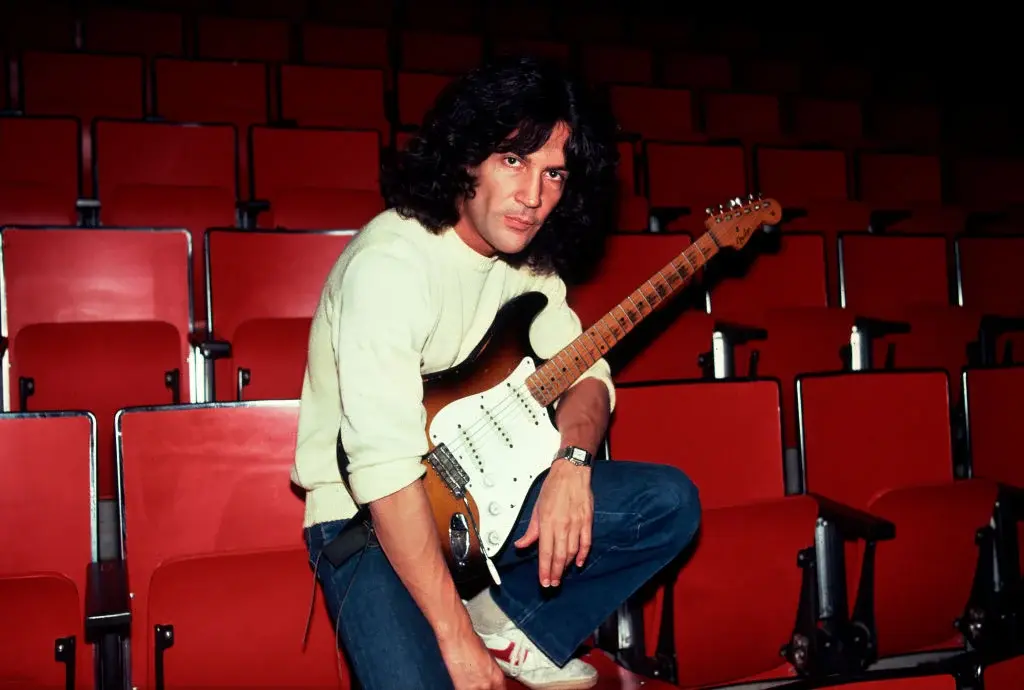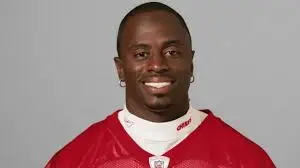Billy Squier Net Worth
Billy Squier Net Worth: Complete Biography, Net Worth, and Career Journey
Billy Squier stands as one of rock music’s most recognizable figures from the 1980s, whose anthemic songs and arena rock sound defined a generation. From his humble beginnings in Massachusetts to becoming a multi-millionaire rock star, Squier’s journey through the music industry represents both triumph and controversy. This comprehensive look at his life, career, and financial status reveals the man behind classics like “The Stroke” and “Rock Me Tonite.”

Table of Contents
Early Life and Background
Birth and Early Life:
- Born William Haislip “Billy” Squier on May 12, 1950, in Wellesley Hills, Massachusetts.
- Raised in a musically supportive household, fostering his early exposure to music.
Musical Beginnings:
- Introduced to classical piano by his grandfather between 1959 and 1961.
- Learned musical fundamentals and developed early musical skills, with a humorous reference to learning “the fine art of bribery.”
First Guitar Purchase:
- In 1963, Billy bought his first guitar, a Danelectro, along with a Supro amplifier, from a neighbor for $90.
- This modest investment would spark a lifelong musical journey.
Musical Influences:
- By 1966, he was introduced to John Mayall & the Bluesbreakers, featuring Eric Clapton.
- The experience significantly influenced his guitar-driven rock style.
Formative Years:
- Spent his youth honing his skills on both piano and guitar.
- His family’s support and his natural talent laid the foundation for his future success in arena rock.
Personal Life and Family
Private Personal Life:
- Billy Squier has maintained a private personal life throughout his career, avoiding media scrutiny.
- Married to Nicole Schoen since 2002, marking over two decades of marriage.
- The couple has kept their relationship largely out of the public eye, respecting Squier’s preference for privacy.
Selective Sharing:
- Squier has been selective about sharing details regarding his relationships and familylife with the media.
- This discretion has helped him maintain a sense of normalcy despite his rock star status.
Spare Time and Charitable Involvement:
- In his free time, Billy enjoys spending quality moments with close friends and family.
- He is also actively involved in supporting charitable causes that are meaningful to him.
Successful Balance Between Fame and Privacy:
- His approach to balancing fame with privacy has allowed him to enjoy both professional achievements and personal relationships without excessive media attention.
Career Beginnings and Early Bands
- Billy Squier began his musical journey performing with several local bands, gaining valuable experience in the rock scene.
- He was a member of The Sidewinders before joining Piper, a band that achieved regional success and helped him develop his stage presence and songwriting skills.
- Piper eventually disbanded, allowing Squier to focus on his solo ambitions.
- In 1979, Squier signed a solo recording contract with Capitol Records, marking the official start of his solo career.
- His debut solo album, “The Tale of the Tape” (1980), spent three months on the Billboard album chart, peaking at No. 169.
- Singles like “You Should Be High Love” and “The Big Beat” received moderate national radio play, hinting at his growing popularity.
- During this era, his backing band featured Bobby Chouinard (drums), Alan St. Jon (keyboards), and Cary Sharaf (lead guitar).
Breakthrough Success with “Don’t Say No”
Album Release and Commercial Impact
- Released on April 13, 1981, marking Billy Squier’s breakthrough moment.
- Achieved Gold status by July 1981 and Platinum certification by September 1981.
- Remained on the Billboard album chart for 111 weeks (over two years).
- Reached the Top Five on the charts and sold over 3 million copies.
Signature Song: “The Stroke”
- Became Squier’s signature track and an instant classic.
- Peaked at #17 on the Billboard Hot 100.
- Climbed to #3 on the Mainstream Rock chart.
- Success coincided with the launch of MTV on August 1, 1981, helping boost its popularity through frequent airplay.
Other Popular Tracks
- “In the Dark” became another hit from the album, appealing strongly to rock audiences.
- Contributed to the album’s longevity and commercial dominance.
Legacy of the Album
- Cemented Billy Squier as a major force in arena rock.
- Defined the peak of his commercial success and remains his most celebrated release.
Peak Career Years and Continued Success
Continued Platinum Success
- Following the massive success of Don’t Say No, Billy Squier released multiple follow-up albums that kept his momentum going.
- Hits like “Lonely Is the Night,” “My Kinda Lover,” “Everybody Wants You,” “All Night Long,” and “Emotions in Motion” became staples of 1980s rock radio.
- By July 1984, the release of “Signs of Life” brought him his third consecutive platinum certification, proving his staying power in the rock scene.
Commercial & Artistic Peak
- This period represented the height of Squier’s career, both commercially and artistically.
- His memorable hooks, distinctive vocal style, and guitar skills made him a favorite among radio programmers and rock fans.
- Each album built upon the foundation of Don’t Say No, cementing his reputation as a defining artist of 1980s arena rock.
The “Rock Me Tonite” Controversy
The Video That Sparked Debate
- The music video for “Rock Me Tonite” became infamous for its creative direction.
- Directed by Kenny Ortega, it featured Squier dancing in a bedroom wearing a pink tank top.
- Though initially not seen as a major issue by some industry insiders (e.g., Martha Quinn), it later became labeled in I Want My MTV as the “worst video of all time.”
Impact on Career
- The video is often cited as a turning point that damaged Squier’s rock credibility.
- Whether the decline was due to the video or changing musical tastes remains debatable.
- This incident serves as a cautionary tale about maintaining image consistency in the MTV era.
Later Career and Continued Activity
2000s and Beyond
- In 2001, Squier celebrated the 20th anniversary of Don’t Say No with a major concert tour, proving his enduring popularity.
- He reinterpreted his classic material, turning “The Stroke” into “Stroke Me Blues” and even allowed remixes like the 2004 version of “Everybody Wants You”.
- Maintains strong fan engagement through his official website and Instagram, where he continues to interact with his audience.
Net Worth and Financial Status
Estimated Wealth (2025)
- Estimated Net Worth: $40M–$80M (Celebrity Net Worth reports $80M).
- Most other sources suggest a range of $40M–$50M.
Sources of Income
- Album Sales & Royalties: Multi-platinum success of Don’t Say No and other albums ensures decades of royalty income.
- Live Performances: Concert tours during peak years significantly boosted his earnings.
- Licensing & Streaming: His music is used in films, TV shows, commercials, and streaming platforms.
Ongoing Revenue Streams
- Songs like “The Stroke” remain highly profitable thanks to media placements.
- Streaming platforms keep his music relevant and continue generating passive income.
| Date | Category | Description | Estimated Amount |
| 2018 | Asset | Current value of Billy Squier’s official website (billysquier.com) | $2,900 |
| 1993 | Record Sales | Album Tell the Truth (approx. 100k copies sold) | $130,000 |
| 1991 | Record Sales | Album Creatures of Habit (approx. 200k copies sold) | $260,000 |
| 1989 | Record Sales | Album Hear & Now (approx. 300k copies sold) | $390,000 |
| 1986 | Record Sales | Album Enough is Enough (approx. 300k copies sold) | $390,000 |
| 1984 | Record Sales | Album Signs of Life (approx. 2.08M copies sold) | $2,700,000 |
| 1982 | Record Sales | Album Emotions in Motion (approx. 1.04M copies sold) | $1,230,000 |
| 1981 | Record Sales | Album Don’t Say No (approx. 3.08M copies sold) | $4,000,000 |
Achievements and Recognition
Career Highlights
- Don’t Say No achieved multi-platinum certification with over 2 million copies sold in the U.S.
- Tracks like “The Stroke” and “Everybody Wants You” are considered cultural touchstones of 1980s rock.
- His music continues to be featured in movies, TV shows, and other media projects.
Lasting Impact
- Decades later, his hits still receive radio airplay and attract new listeners via streaming platforms.
- His work remains influential to rock musicians and fans alike.
Impact on Rock Music and Legacy
- Helped define arena rock’s sound in the early 1980s.
- Blended hard rock energy with pop hooks, creating a commercially powerful style.
- His early music videos helped shape the visual language of MTV.
- Even the controversial “Rock Me Tonite” video remains part of rock history, demonstrating how visual media can shape careers.
Financial Management and Business Acumen
Smart Money Decisions
- Maintained and grew his wealth over decades by managing his music rights carefully.
- Controlled ownership of his catalog, ensuring ongoing royalties and licensing revenue.
- Diversified income streams (albums, touring, licensing) to stay financially secure.
Long-Term Stability
- Avoided financial pitfalls common among rock stars.
- Built a solid financial base that allows him to live privately and pursue passion projects.
Current Activities and Future Prospects
Modern Era Presence
- Continues to engage with fans online and occasionally performs live.
- Streaming platforms like Spotify and Apple Music introduce his music to younger generations.
Future Outlook
- His established wealth gives him freedom to focus on projects that interest him.
- Likely to continue benefiting from catalog royalties, media placements, and streaming revenue for decades to come.
Curious how different careers shape wealth? Discover Lina Strahl Net Worth and learn about her journey to financial success.
FAQs about Billy Squier net worth
Conclusion
Billy Squier’s journey from a young musician in Massachusetts to a multi-millionaire rock star represents one of the most successful stories in 1980s rock music. His ability to craft memorable songs that combined hard rock elements with pop sensibilities created a sound that defined an era and continues to resonate with audiences today.
Despite facing challenges, including the controversial “Rock Me Tonite” video, Squier’s legacy remains secure. His financial success, estimated between $40 million and $80 million, reflects not only his commercial achievements but also sound business management that has preserved his wealth over decades.







